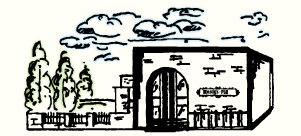The history of pubs – from antiquity to modern times

A pub is not just a place to drink beer, cider or something more substantial. Pubs are essential to people’s lives in towns and villages across the country. Pubs are where customers watch soccer en masse. To improve the quality of the spectator experience, British clubs will even remove bookmakers’ logos from their shirts. But most importantly, people come to pubs to socialize. In these times of widespread loneliness, this is especially important. But how did these establishments appear in the world? Their history is quite long.
Obviously, the history of pubs began in Britain. Interestingly, British pubs appeared thanks to the ancient Romans. About 2000 years ago, in 43 AD, along with Roman roads and towns, Roman wine shops – tabernacles – came to Britain. They were built along the streets so soldiers could rest and drink wine. But it wasn’t wine that the British liked, it was ale. So, the tabernacles started selling local beer and gradually turned into taverns. Later, taverns and drinking houses survived invasions by Angles, Saxons and even Vikings.
In the 10th century, King Edgar tried to limit the number of beer houses in each village. He even invented a measure of drinking called a “peg”. Hence, the expression “to knock someone off their peg” means putting a person in their place. Taverns, inns and inns Taverns and pubs gave people food and drink, and inns (inns) also offered overnight lodging for travellers. These could be merchants, pilgrims or even soldiers. For example, the famous Ye Olde Trip to Jerusalem in Nottingham, built in 1189, served as a recruiting ground for soldiers for King Richard the Lionheart’s campaigns. Over time, all these establishments came to be called pubs, short for public houses.
During King Henry VII’s time, their owners even had to obtain special licenses. In 1577, there were about 17,000 pubs, 2,000 inns and 400 taverns in England and Wales. At that time, that was about one pub per 200 people! Today, however, that ratio is one pub per 1,000 people. The Age of Gin and Stagecoach In the 17th century, coffee and tea were brought to Britain, but they were too expensive. But cheap gin from Holland quickly became popular. From 1720 to 1750, the “gin era” began, which brought many social problems. The Gin Acts of 1736 and 1751 reduced its use and brought order back to pubs. In the 18th century, with the advent of stagecoaches, pubs became essential stops on the routes.
Over time, pubs have become common establishments in many countries around the world. In addition to alcohol and snacks, these places offer a variety of other entertainment for all tastes. One recent trend is the organization of various gambling games. In this way, pubs want to attract fans of such entertainment. After all, with the development of the iGaming industry, people began to play slots, roulette, poker, and other games.
The statistics of search queries evidence the popularity of such entertainment. We have studied this information and found many large international online casinos. The most significant number of games we saw was at Melbet. We are talking not only about thousands of slots but also about sports betting. And all of this is available right from your phone. To start playing, you need to signup Melbet, which takes only a few minutes. Such simplicity makes gambling even more popular.
The growth of the iGaming market shows that more and more players are coming here. However, many people still prefer to play at land-based casinos. After all, no online casino can provide a unique atmosphere. Therefore, pubs’ strategies for organizing gambling can lead to the growth of customers.





